Clear key tasks, outstanding results
In the context of the Fourth Industrial Revolution taking place strongly, fundamental and comprehensive innovation of education and training in the direction of intelligence and modernity has become an urgent requirement. As a training facility for political cadres at the squad level, teachers of social sciences and humanities, building a Political Officer School in the direction of intelligence and modernity is not only a step in line with the trend of educational development but also an important condition to improve the quality of training, contributing to building a revolutionary, disciplined, elite and modern Vietnam People's Army. In that process, the leadership role of the school's Party Committee holds a key and decisive position.
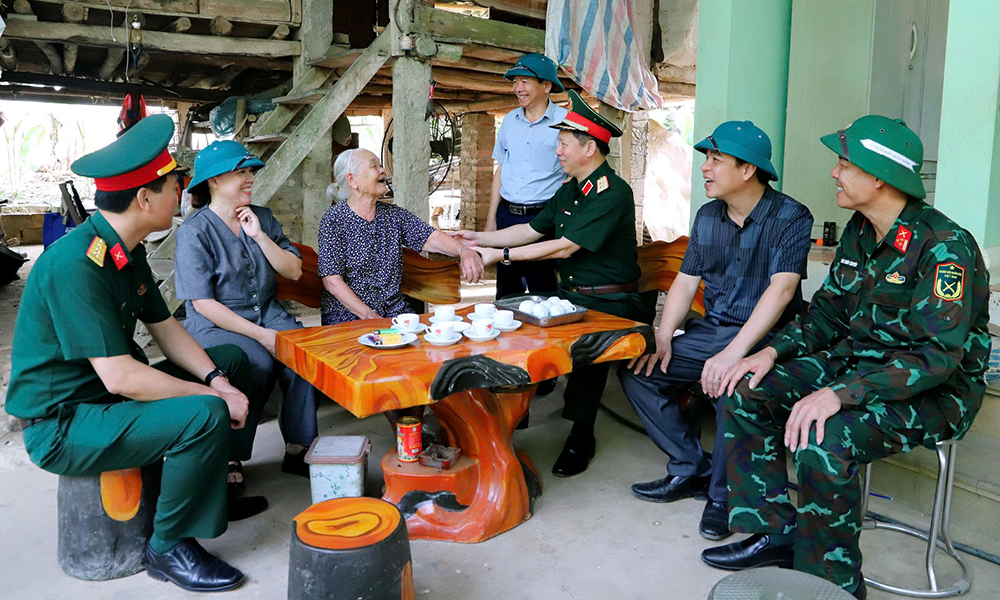 |
| Lieutenant General Nguyen Quoc Tuan, Party Secretary and Political Commissar of the Political Officer School, visited and presented gifts to the families of martyrs in Mong sub-region, Luong Son commune, Phu Tho province. Photo: HOAI SON |
In recent years, the Party, the State and the Army have issued many important resolutions and directives to guide the development of education and training in the new period. In particular, the Resolution of the 13th National Party Congress determined: “Learning mainly in the classroom will be replaced by organizing diverse forms of learning, paying attention to online teaching and learning, via the internet, television, social activities, extracurricular activities, scientific research; school education combined with family education and social education. Training people in the direction of ethics, discipline, order, sense of civic and social responsibility; having life skills, working skills, foreign languages, information technology, digital technology, creative thinking and international integration”. Resolution No. 1657/NQ-QUTW of the Central Military Commission determined: “Building a number of smart, modern, high-quality schools, following the model of research universities, becoming centers for training, scientific research, and technology transfer at the national and regional level”.
In practice, the requirement to build a “revolutionary, disciplined, elite, modern” Army requires each training institution to quickly adapt and develop according to the smart school model. This is an educational model that applies digital technology, artificial intelligence, big data... to optimize the teaching-learning process, management, scientific research, and development of high-quality human resources. For the Political Officer School, building a smart school is also associated with the requirement to improve political capacity, theoretical thinking, and practical organizational capacity for students to meet the requirements and tasks in the new situation.
Fully aware of the above requirements and tasks, the Party Committee and the Board of Directors of the school determined that: Building a smart, modern school is one of the key, consistent and breakthrough tasks. On that basis, the Party Committee of the school has issued many thematic resolutions and specific action programs to comprehensively lead and direct all aspects of work associated with digital transformation and modernization. The Party Committee focused on directing the review, supplementation and completion of the school development plan to 2030, with a vision to 2045 in the direction of smartness and modernity. At the same time, the leaders developed a digital transformation plan and a roadmap for applying information technology in management, teaching and learning.
One of the bright spots is the strong innovation in the work of building a team of cadres and lecturers. The school's Party Committee directs agencies, faculties and units to focus on training a team of cadres and lecturers capable of applying new technology, innovating pedagogical methods and mastering modern teaching aids.
With high political determination and the strong and synchronous leadership and direction of the Party Committee, the Political Officer School has achieved many important results in building a smart and modern school. The system of regulations and rules on education and training has been completed; the training programs for subjects have been supplemented and standardized; the school has autonomously organized training for first-year students to achieve good quality; the school has completed the construction, review, revision and supplementation of output standards for training programs. The school has newly built, reviewed and revised 18 training programs for subjects according to the credit system; built, reviewed and revised 23 output standards for training subjects.
Up to now, the training management system has been gradually digitized on a technology platform. The school has initially deployed smart classrooms, equipped with interactive boards, simulation software, and electronic learning materials. The digital library system and digital learning material management system have been upgraded and expanded, creating favorable conditions for learners to access knowledge anytime, anywhere. In particular, teaching, testing, and assessment methods have been innovated towards developing qualities, capacities, critical thinking, and practical application capabilities. Many digital transformation models and initiatives in teaching and scientific research of lecturers and students have been effectively implemented, gradually changing traditional educational thinking. In addition, the school also promotes cooperation, data sharing, connecting training institutions inside and outside the Army, building an open learning ecosystem, serving the requirements of integration and development.
The team of teachers and educational managers are interested in building and nurturing, with qualifications, qualities and capacities to meet the requirements of the task, the number of excellent lecturers increased by 6.1% compared to the previous term. Students have the right awareness and motivation to study and practice, increasingly meeting the output standards of the training program. The annual learning results are 94.19% good and excellent (an increase of 2.77% compared to the previous term). The annual postgraduate training results are 100% good and excellent.
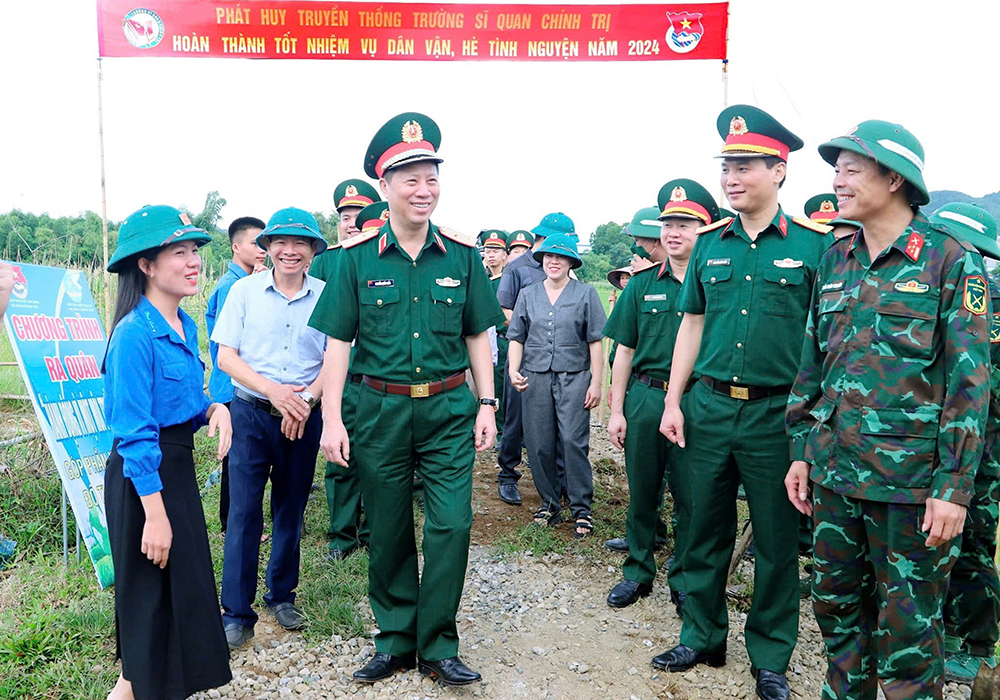 |
| Leaders of the Political Officer School encouraged officers and students to do mass mobilization work combined with summer volunteering. Photo: HOAI SON |
Military science work, promoting innovation and digital transformation have been well implemented. Curriculum and teaching materials have been researched and compiled to ensure scientific standards, suitable for the level of education and training subjects; actively and proactively digitizing the curriculum and document system; building a digital electronic library. The system of topics at all levels has been researched on schedule, and the quality has been increasingly improved. The school has compiled 159 textbooks, 66 teaching materials, 12 intermediate-level political theory teaching materials; researched and accepted 5 topics at the Ministry of National Defense level, 38 topics and initiatives for industry tasks, 110 topics and initiatives at the grassroots level; 17 military history topics ensuring good quality. During the term, the school successfully coordinated to organize 8 school-level scientific seminars; 28 grassroots seminars; more than 800 seminars and scientific activities at all levels.
In response to the requirements of building a strong and comprehensive unit, the school's Party Committee focuses on leadership, thoroughly studying, researching, learning, and implementing well the resolutions, directives, conclusions, and projects of the Party, the Central Military Commission, and the Ministry of National Defense. Solutions to improve training quality, combat readiness, formalization, discipline management, administrative reform, and digital transformation are implemented synchronously and effectively. The school has 5 units recognized by the Ministry of National Defense as Excellent Physical Training Units.
Orientation for developing smart and modern schools
Building a Political Officer School that develops in a smart and modern direction is a long-term, systematic process, requiring centralized, unified leadership, and high consensus in the awareness and action of the entire Party Committee, agencies, departments, and units in the school. To meet the requirements and tasks in the new situation, the Party Committee of the school has determined specific strategic directions: Strengthening political and ideological education in the entire Party Committee on the role and significance of building a smart and modern school for the cause of training political cadres and the task of building the Army in the new period.
The Party Committee focuses on leading the development of high-quality human resources with technological capacity and innovative thinking. The team of cadres and lecturers is the decisive factor in the quality of education, especially in the smart school model. It is necessary to focus on planning, training and fostering a team of multidisciplinary lecturers, capable of integrating political-military knowledge with digital technology, simulation, and artificial intelligence. Organize training courses on digital pedagogy, transform teaching methods, use technology software in teaching; select and train a team of educational technology experts in the Army, capable of building simulation software and virtual training data. In addition, there should be a mechanism to encourage and reward individuals and groups with outstanding initiatives and contributions to digital transformation and innovation in educational methods. Continue to thoroughly grasp and implement the Project "Policy to attract and promote talents in the Vietnam People's Army until 2030, with a vision to 2050".
The Party Committee focuses on leading the review, development, and completion of training regulations and rules; standardizing training programs; focusing on developing the necessary qualities and capacities for students according to the output standards of the training program. Implementing digital transformation in education and training well, focusing on digitizing training programs, textbooks, documents, building electronic lectures, and shared digital learning resources to meet the learning and lifelong learning needs of soldiers. Promoting the application of information technology, improving the quality of consulting, managing, and operating education and training activities. Actively innovating teaching methods and forms in a smart and modern direction; improving foreign language proficiency, digital knowledge, and digital skills for cadres, lecturers, and students. Innovating assessment and evaluation from knowledge testing to comprehensive capacity assessment, using online exams, interactive tests, situational exercises, and assessment interviews. Building an electronic exam bank, an automatic, transparent and effective exam grading system.
Regarding the task of scientific research and application of educational technology, the Party Committee of the school focuses on leading the improvement of the quality of military scientific activities, innovation and digital transformation. Combining basic research with applied research, linking scientific research activities with the task of education and training; prioritizing scientific topics and tasks on the application of new technologies in teaching and practicing professional skills. Developing pilot models of digital classrooms, practical simulations, and virtual sand tables. Strengthening cooperation with research institutes, universities of technology, and military units with strengths in science and technology to transfer, test and apply new technologies in education. Building the school into a prestigious center for research in social sciences and humanities of the Army and the country.
One of the key orientations is to invest in developing information technology infrastructure in a systematic, synchronous manner, following a suitable roadmap. Prioritizing the development of the following items: High-speed internal network with military security; server system and training management and learning management software; smart classrooms, integrated multimedia teaching equipment, interactive boards, surveillance cameras; electronic libraries, digital learning materials, specialized political-military data warehouses; data centers serving the storage and analysis of big data in teaching and research.
With a strong political stance, innovative and creative thinking and a high sense of responsibility, the Party Committee of the Political Officer School will continue to promote its core leadership role, bringing the school to new heights, worthy of being the leading center for training political cadres of the Vietnam People's Army.
NGUYEN QUOC TUAN ,
Source: https://www.qdnd.vn/tien-toi-dai-hoi-xiv-cua-dang/lanh-dao-xay-dung-truong-si-quan-chinh-tri-phat-trien-theo-huong-thong-minh-hien-dai-841866



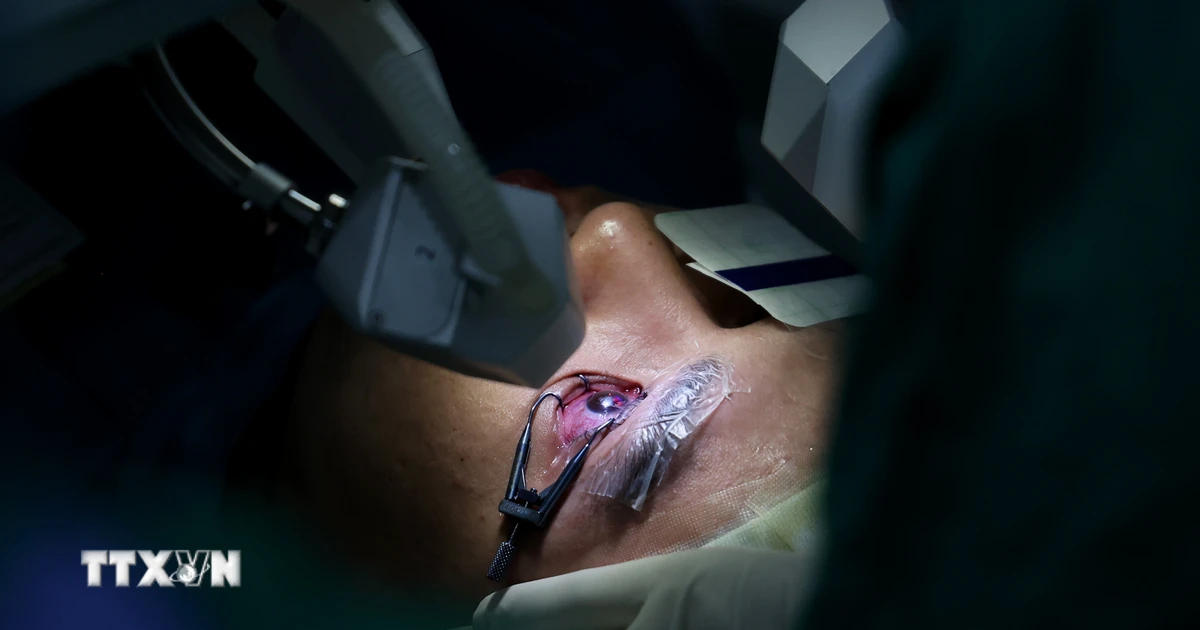
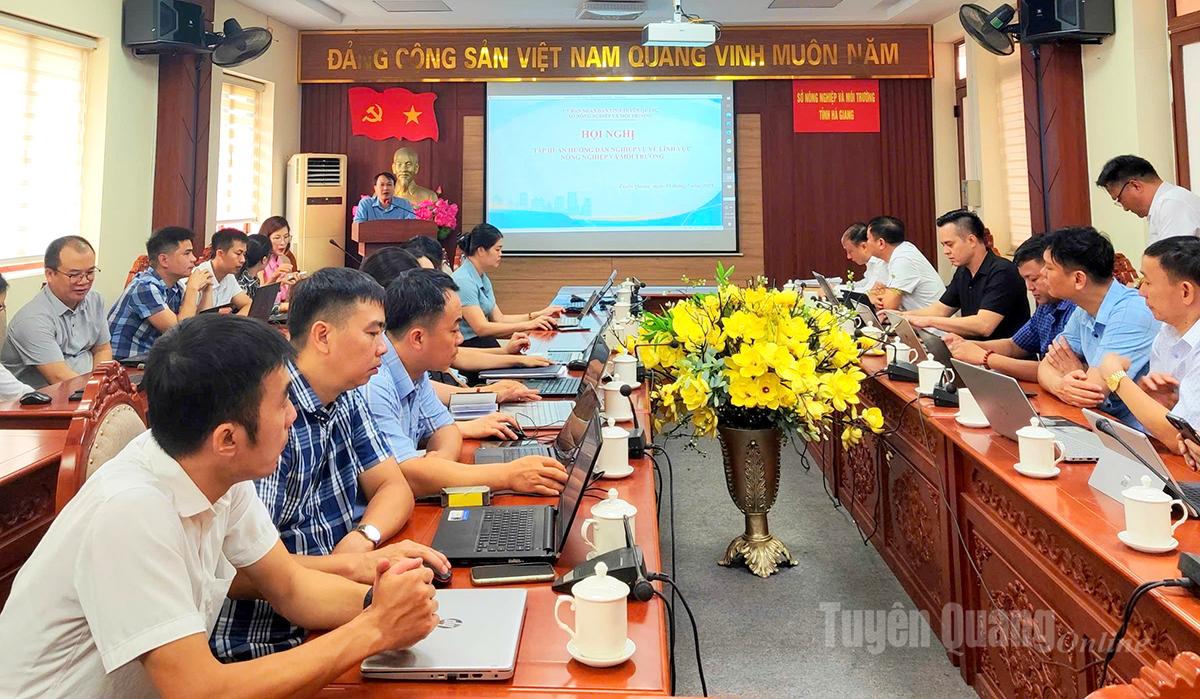
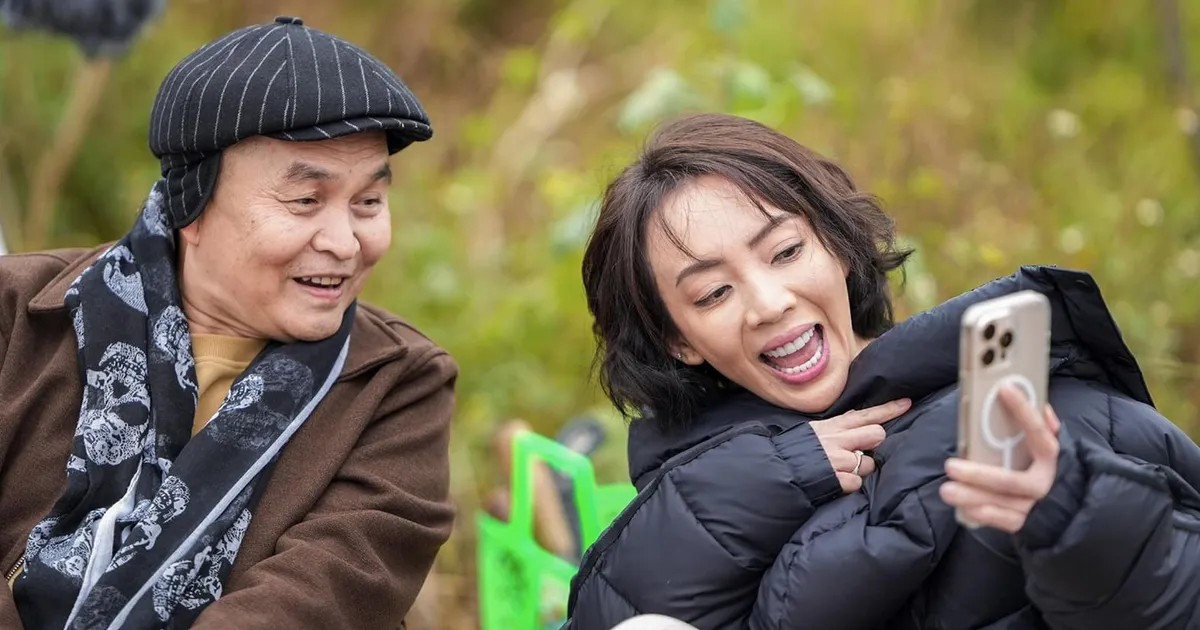
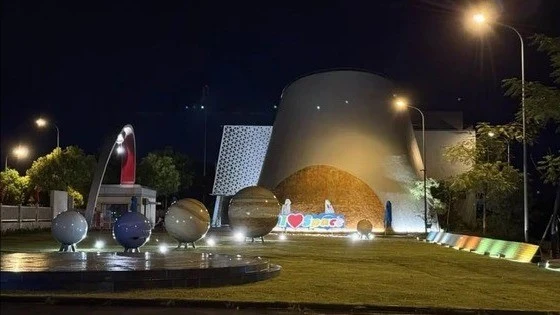
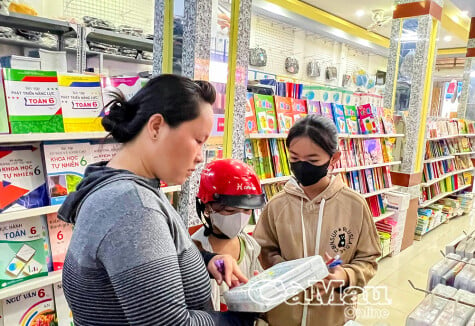
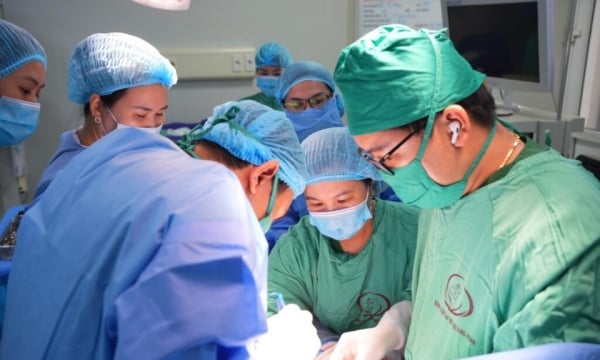
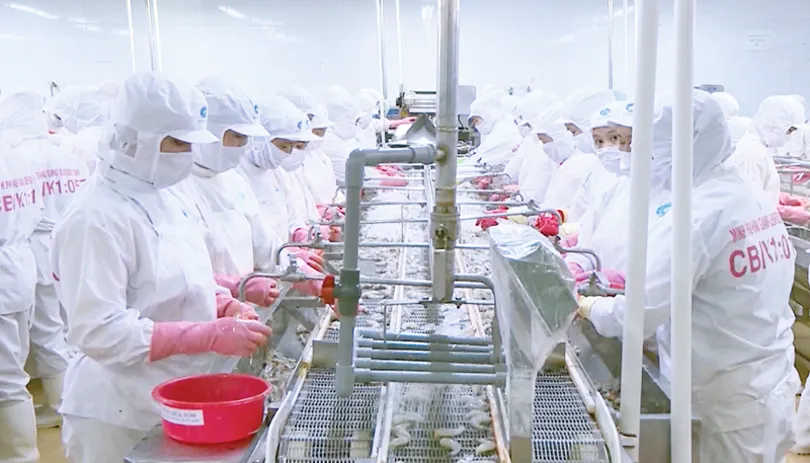

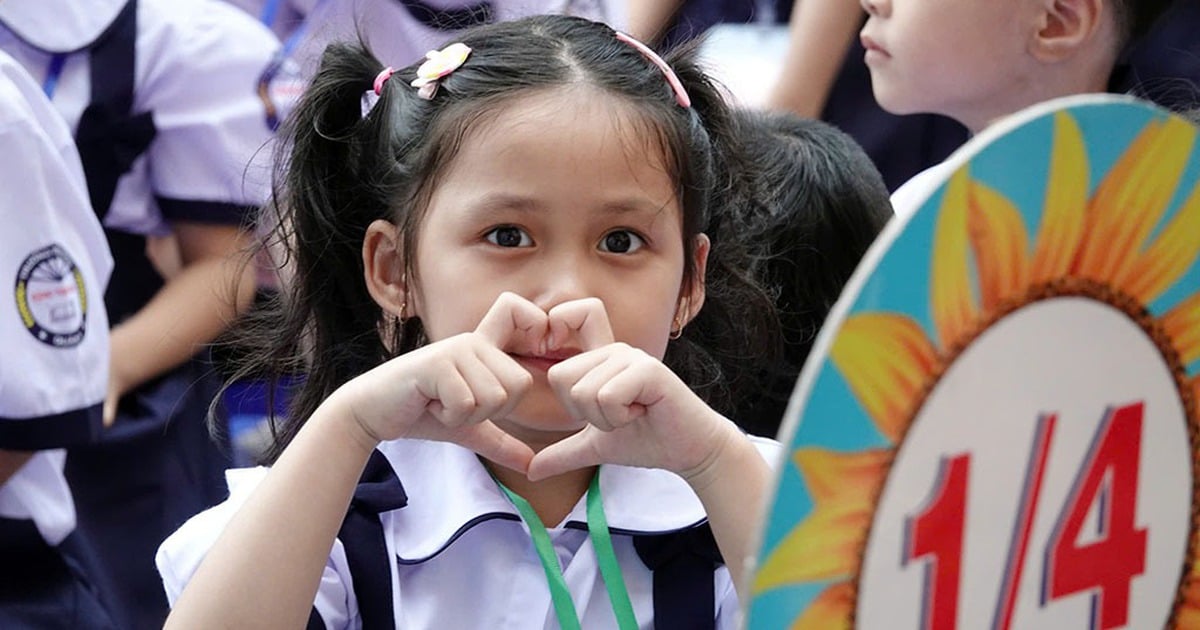
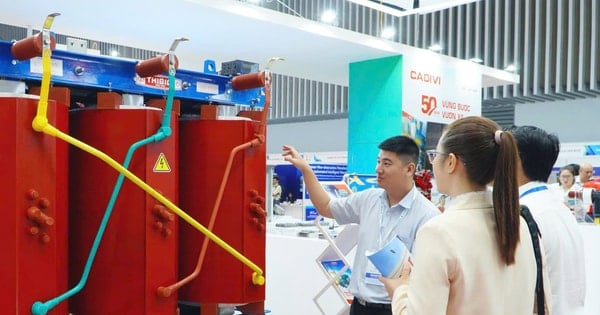
















![[Photo] An Phu intersection project connecting Ho Chi Minh City-Long Thanh-Dau Giay expressway behind schedule](https://vstatic.vietnam.vn/vietnam/resource/IMAGE/2025/8/21/1ad80e9dd8944150bb72e6c49ecc7e08)


































![[Photo] Politburo works with the Standing Committee of Hanoi Party Committee and Ho Chi Minh City Party Committee](https://vstatic.vietnam.vn/vietnam/resource/IMAGE/2025/8/21/4f3460337a6045e7847d50d38704355d)

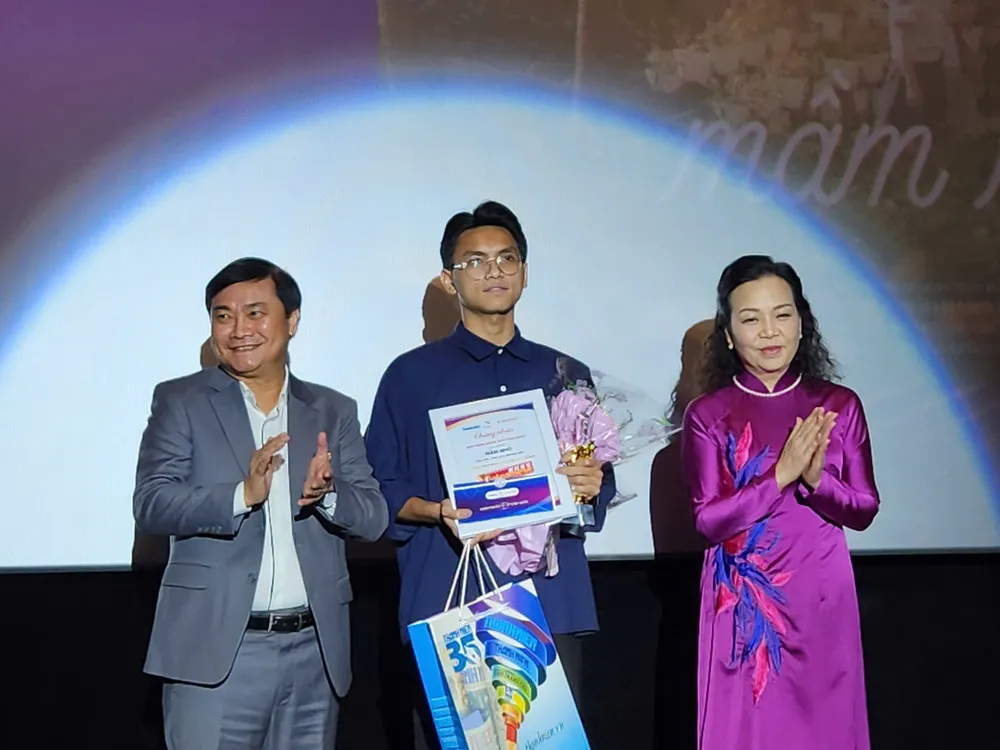































Comment (0)